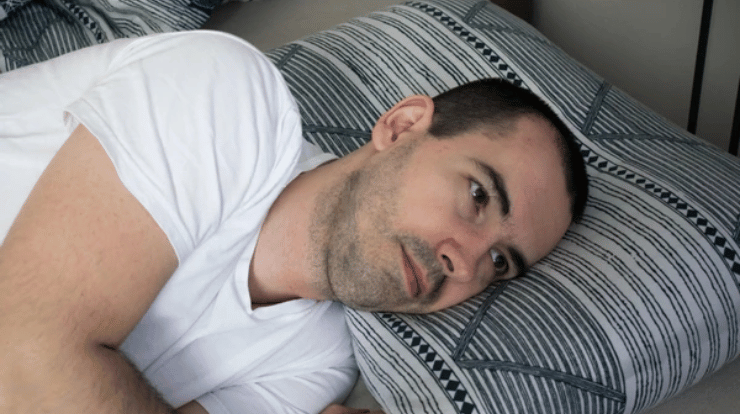
Compression socks are tight-fitting socks that apply pressure to your legs, ankles, and feet. They are often worn by people with certain medical conditions or standing or sitting for long periods. However, it’s natural to wonder if sleeping in compression socks is safe or advisable.
Can You Sleep in Compression Socks?
In general, it is safe to sleep in compression socks if your doctor has prescribed them for you. However, if you are wearing compression socks to relieve swelling or discomfort, you should remove them before bed. This is because wearing compression socks for too long can make swelling worse.
If you do choose to sleep in compression socks, here are a few things to keep in mind:
- Ensure they fit correctly: Compression socks should fit snugly but not tight. If they are too tight, they can restrict blood flow and cause discomfort.
- Avoid wearing them for too long: If you wear compression socks to prevent blood clots or improve circulation, you may need to wear them for long periods. However, if you wear them for swelling or pain relief, you must take them off before bed.
- Check for any signs of irritation: If you experience any itching, redness, or discomfort while wearing compression socks, take them off and check for any signs of irritation or allergic reaction.
- Wash them regularly: It’s essential to wash your compression socks regularly to prevent the buildup of bacteria and other germs.
When to Wear Compression Socks?
Compression socks are often used to treat a variety of medical conditions, including:
- Venous insufficiency: Venous insufficiency is a condition in which the veins in your legs cannot pump blood back up to your heart effectively. This can lead to swelling, discomfort, and varicose veins. Compression socks can help improve circulation and reduce swelling in people with venous insufficiency.
- Lymphedema: Lymphedema is a condition in which excess fluid builds up in your tissues, causing swelling in your arms or legs. Compression socks can help reduce swelling and discomfort in people with lymphedema.
- Deep vein thrombosis (DVT): DVT is a condition in which blood clots form in the deep veins of your legs. Compression socks can help prevent DVT by improving blood flow and reducing the risk of blood clots.
- Post-surgery recovery: Compression socks can help improve circulation and reduce leg swelling after surgery.
- Standing or sitting for long periods: If you spend a lot of time standing or sitting, you may be at risk for poor circulation and swelling in your legs. Compression socks can help improve blood flow and reduce discomfort.
- Pregnancy: Many pregnant women experience swelling and discomfort in their legs and feet. Compression socks can help improve circulation and reduce swelling during pregnancy.
Best Compression Socks For Sleeping
SB SOX Compression Socks
Can you wear compression stockings 24 hours a day?
It is generally not recommended to wear compression stockings 24 hours a day unless expressly advised by a doctor or healthcare professional.
If you are prescribed compression stockings, your doctor will likely recommend a specific wear schedule based on your needs and medical condition. It is essential to follow their recommendations to ensure the best possible results and minimize the risk of any negative side effects.
- In general, if you are using compression stockings to manage to swell, it is recommended to wear them during the day and remove them at night. This allows your legs to rest and recover while you sleep and can help prevent further swelling or discomfort.
- However, if you use compression stockings to prevent blood clots or improve circulation due to a medical condition, your doctor may recommend wearing them 24 hours a day. In this case, following their guidelines closely and monitoring your legs for any signs of discomfort or irritation is especially important. It may also be helpful to periodically remove the stockings to check for any signs of skin irritation or damage.

Should diabetics wear compression socks to bed?
It is generally not recommended for diabetics to wear compression socks to bed unless expressly advised by a doctor or healthcare professional. While compression socks can help improve circulation and reduce swelling, some potential risks and complications can arise from wearing them while sleeping, especially for people with diabetes.
People with diabetes are at increased risk for foot-related complications, including poor circulation, nerve damage, and foot ulcers. Wearing compression socks to bed can increase the risk of these complications by restricting blood flow and causing pressure on the feet and legs.
In addition, people with diabetes may be less likely to notice signs of discomfort or irritation from wearing compression socks, which can increase the risk of skin damage or infection.
If you are a diabetic considering wearing compression socks to bed, discussing this with your doctor or healthcare provider first is essential. They can help you determine whether it is safe and appropriate for your needs and medical condition and guide you on wearing compression socks safely and effectively.
Can you sleep in compression socks when pregnant?
It is generally safe for pregnant women to wear compression socks during the day. Still, it is not recommended to wear them while sleeping unless expressly advised by a doctor or healthcare professional.
Pregnancy can cause several changes in the body that can increase the risk of developing blood clots, such as changes in hormone levels, increased blood volume, and decreased mobility due to the growing baby. Compression socks can help improve circulation and reduce the risk of blood clots in pregnant women, especially those at higher risk.
However, wearing compression socks while sleeping can increase the risk of discomfort and complications, such as skin irritation, pressure sores, or decreased blood flow to the feet and legs. It is generally recommended to remove compression socks before bed to allow the feet and legs to rest and recover.







